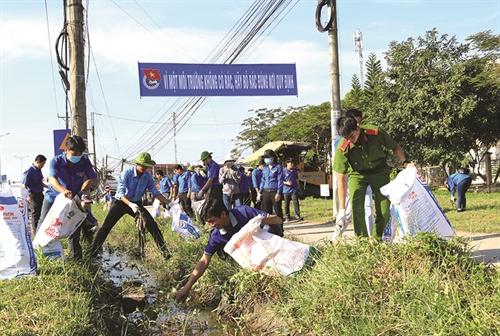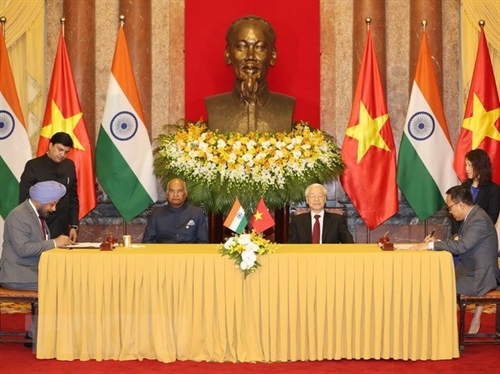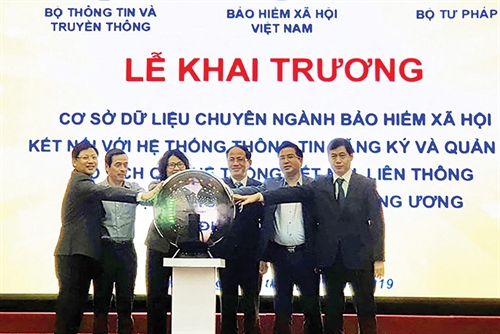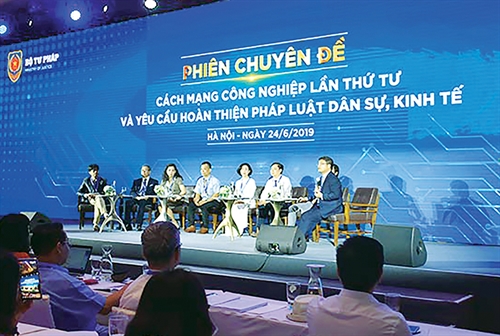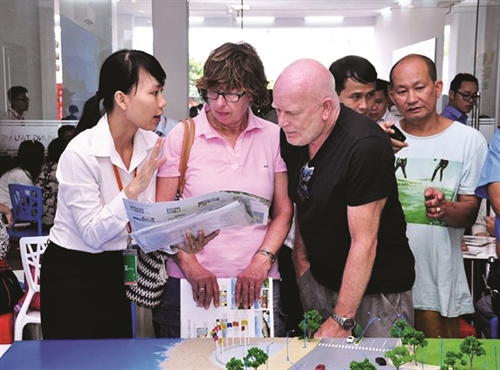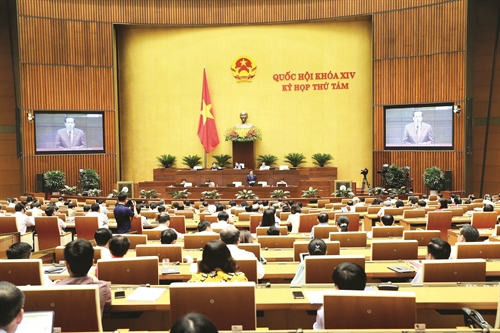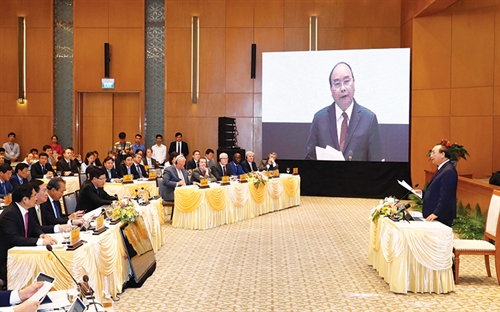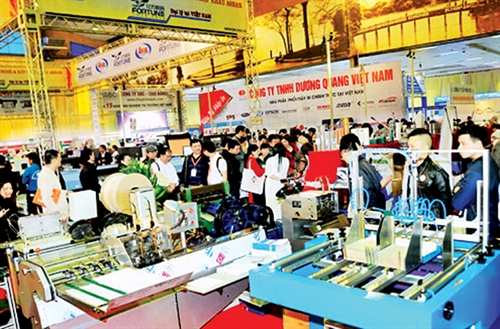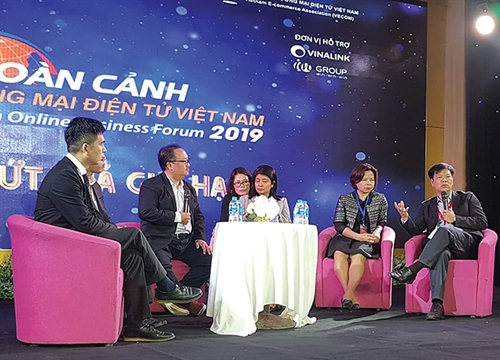Over the last few years, in addition to such traditional real estate products as land use rights, houses and construction works, Vietnam’s property market has seen the emergence of many new types of realty, e.g., serviced apartment, co-working space, tourism property, and agricultural property. This article analyzes the legal framework for agricultural property which has become more and more popular in the country and drawn the attention of both domestic and foreign investors.
Assoc. Prof. Doan Hong Nhung, LL.D
Law Faculty
Vietnam National University, Hanoi
Agricultural property and agricultural property business in Vietnam
Agricultural property can be defined as agricultural land and property built on agricultural land. By use purpose, Article 10.1 of the 2013 Land Law classifies agricultural land into the following types: (i) land for cultivation of annual crops, including paddy land and land for cultivation of other annual crops; (ii) land under perennial trees; (iii) production forest land; (iv) protection forest land; (v) special-use forest land; (vi) aquaculture land; (vii) salt-making land; and (viii) other agricultural land, including land for construction of greenhouses and other farm buildings, inclusive of those for soilless farming, or facilities for raising cattle, poultry and other animals as permitted by law; land for cultivation, husbandry and aquaculture for the purpose of learning, research or experimentation; land for planting and nursing seedlings and breeding stock, and land for growing flowers and ornamental plants.
As a type of real estate, agricultural property requires large-scale accumulation of land for investment in hi-tech agriculture with a view to producing and processing agricultural products with environmental protection taken into consideration so as to attain sustainable development. This business model is at first aimed at developing farming economy. Against the backdrop of the growing trend of eco-tourism, farms gradually become tourist destinations where visitors can experience the farm ambiance and participate in a wide range of outdoor activities. To meet the incrementally increasing demand, farm owners themselves build vacation rental property to provide accommodations as well as meals to visitors and earn profits from these services, in addition to income from agricultural production. This is the characteristic that distinguishes agricultural property from other types of real estate.
The agricultural property market is the place where agricultural property-related transactions take place, including purchase and sale, lease, sub-lease and transfer of agricultural land use rights and real estate attached to agricultural land, with a view to getting benefits from agricultural land. In reality, agricultural property models vary between regions according to socio-economic and environmental conditions. In Vietnam in particular and all over the world in general, there are several basic models of agricultural real estate, ranging from producing agricultural specialties to creating agricultural value chains through investing in husbandry and plantation farms combined with eco-tourism. Successful models of dealing in agricultural property include Bac Ninh province-based perilla farm of the Ho Guom company which produces perilla leaves for export to Japan; Dai Nam tourist park’s ostrich farm in Binh Duong province which is specialized in not only producing ostrich meat and eggs but also providing ostrich riding experience to visitors; and Thung Nham resort, a bird park in Ninh Binh province providing bird-watching tours and accommodation and food-catering services.
Compared to traditional farming models, the application of advanced technologies to agricultural production has helped increase productivity and product quality. As a result, land use efficiency and agricultural property value are increased. This is the reason why agricultural property business has attracted great investments from prestigious real estate investors at home and abroad in the recent years. FLC, Masan, Hoang Anh Gia Lai and Pan Group are big names that have invested in and gained initial yields from agricultural property. However, these benefits remain modest if compared to the core real estate niches as well as the potential of Vietnam’s agriculture[1].
At present, the biggest reason behind the bottleneck in the development of Vietnam’s agricultural property market is problems in the land accumulation policy. Investment in agricultural property requires the agricultural land accumulation for large-scale production which, in some cases, is up to hundreds of hectares. In Vietnam, agricultural land is usually allocated to farmer households based on the number of household members. As a consequence, enterprises that wish to invest in agriculture have to acquire land from farmer households. This is not an easy task because households’ allocated land areas are quite small and investors might have to work with every household and get the nod from every household member in order to accumulate a sufficiently large area. It is not to mention the fact that most farmers, in fear of losing the minimum livelihood, often hesitate at transferring their land use rights to others though earning low income from agricultural production. In addition, almost all farmers just want to lease their land for a short period of between three and five years rather than signing long-term leases.
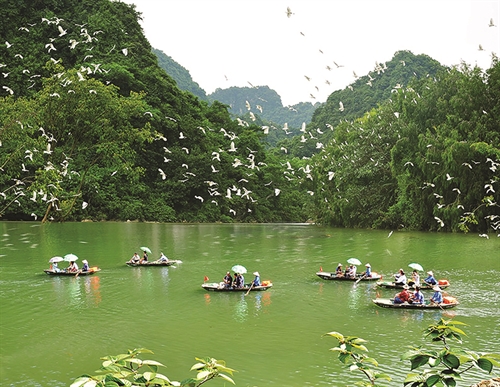 |
| Thung Nham bird park, an attractive tourist destination in Hoa Lu district, Ninh Binh province__Photo: Internet |
Some localities have had to resort to expedients to remedy this situation. In the Red River delta province of Ha Nam, district- and commune-level administrations come forward to rent land from farmers for a 20-year period. Then, they sub-lease such land to enterprises at rental rates and for lease terms like those stated in contracts signed with farmer households. Noteworthily, farmers can still keep their land use rights certificates. Ha Nam has also applied on a trial basis the mechanism allowing the use of local budget funds to make one-off payment of land rentals for the whole lease term of 20 years to farmers. Enterprises will pay half of this amount to the province right after sub-lease contracts are signed, while the remainder will be paid within the next 10 years. Thanks to these flexible policies, Ha Nam has managed to form six hi-tech agriculture zones with a total land area of 654.7 hectares[2].
Agricultural property investors also face numerous problems in the process of acquisition of land use rights. According to the 2013 Land Law, the quota for acquisition of the rights to use land under annual crops by households must not exceed 10 times of the land allocation quota. This provision makes it difficult to acquire land in excess of the set quota as investors have to ask others to undersign transfer contracts for excessive land areas and may not use such land areas as a bank loan security. Besides, as the law mentions only the transfer of land to households and individuals directly engaged in agricultural production, other entities, though possessing capital, technology and market solutions, might find it difficult to acquire agricultural land from farmers. These regulations are believed to discourage land accumulation and hinder large-scale investment in agriculture[3].
Legal framework for agricultural property
It is true that Vietnam has not yet had an adequate legal framework regulating agricultural property business. The agricultural property sector operates mostly by flexibly applying specialized laws[4] to realize transactions and deals in the market based on agreements between involved parties. Below we examine how the current legal system deals with agricultural property business.
Firstly, Article 33 of the 2013 Constitution states: “Everyone has the right to freedom of enterprise in the sectors and trades that are not banned by law.” Article 7.1 of the 2014 Enterprise Law once again affirms that enterprises are free to do business in the sectors and trades that are not banned by law. Meanwhile, Article 6 of the 2014 Investment Law lists six sectors and trades banned from business and neither of them is agricultural property. In other words, agricultural property business is not banned by law and everyone has the right to deal in agricultural property.
Secondly, regarding the forms of establishment of transactions, the reality shows that agricultural property-related transactions are also conducted under contracts like other immovable assets. These contracts, including contracts on transfer of land use rights and contracts on purchase and sale of houses or construction works, are all made in accordance with Article 17 of the 2014 Law on Real Estate Business regarding real estate trading agreements.
Thirdly, the implementation of projects using agricultural land is governed by the 2013 Land Law. Accordingly, the transfer of the rights to use agricultural land and agricultural property must satisfy all the conditions prescribed in Article 190 of the 2013 Land Law which stipulates: “Households and individuals using agricultural land which is allocated by the State or obtained through exchange, acquisition of land use rights, inheritance, or donation of lawful land use rights from other land users, may only exchange these agricultural land use rights to other households and individuals in the same commune, ward or township to facilitate agricultural production, and do not have to pay income tax incurred from the exchange of land use rights and registration fee.”
When conducting transactions, involved parties must pay attention to cases in which acquisition of land use rights through transfer or donation is not allowed as follows:
Organizations, households, individuals, communities, religious establishments, overseas Vietnamese and foreign-invested enterprises may not receive land use rights transferred from or donated by others in case such transfer or donation is prohibited by law;
Economic organizations may not acquire the rights to use paddy land, protection forest land or special-use forest land from households or individuals, except the case of land use purpose change in accordance with land use master plans and plans approved by competent state agencies;
Households and individuals not directly engaged in agricultural production may not receive paddy land use rights transferred from or donated by others; and,
Households and individuals may not receive residential land use rights and agricultural land use rights transferred from or donated by others with regard to the land located in the areas of protection forests, strictly protected zones and ecological restoration zones in special-use forests if they do not live in such protection forests or special-use forests.
Parties to agricultural property-related transactions must also carefully consider cases in which households and individuals may transfer or donate land use rights under certain conditions as prescribed in Article 192 of the 2013 Land Law, as follows:
Households and individuals that live in strictly protected zones or ecological restoration zones in special-use forests and are not able to move out of these areas may only transfer or donate the rights to use residential land or forest land in combination with agricultural, forestry and aquaculture production purposes to households and individuals living in these areas;
Households and individuals that are allocated residential land or agricultural land in protection forests by the State may only transfer or donate the rights to use residential or agricultural land to households and individuals living in these areas; and,
Households and individuals of ethnic minorities that use allocated land under the support policies of the State may transfer or donate land use rights after 10 years from the date of issuance of land allocation decisions in accordance with the Government’s regulations.
We hereby recommend some solutions to promote the development of the agricultural property market.
Firstly, the State should create a legal environment for the real estate market in general and agricultural property market in particular to operate in an organized manner. It should also formulate new land use and construction master plans and supplement existing ones in a way that facilitates agricultural property business and provides for the registration of ownership over agricultural property, thus facilitating investment in and development of the sector.
Secondly, in order to facilitate the state management of the agricultural property business, agricultural property should be added to the scope of regulation of the 2014 Law on Real Estate Business, 2013 Land Law, 2014 Housing Law and other relevant documents.
Thirdly, appropriate policies should be adopted to encourage and support domestic and foreign organizations and individuals to invest in agricultural property, giving priority to the Northwestern, Central Highlands and Southwestern regions.
Fourthly, a system providing information on agricultural property prices should be built; inspection, and handling of violations in agricultural property business should be intensified, while disputes, complaints and denunciations concerning agricultural property should be quickly settled.
Lastly, the Vietnam National Real Estate Association, the Vietnam Chamber of Commerce and Industry and related state agencies should provide legal consultancy services to help those wishing to invest in the sector.-
(This research, coded 505.01-2018.01, is funded by Vietnam National Foundation for Science and Technology.)
